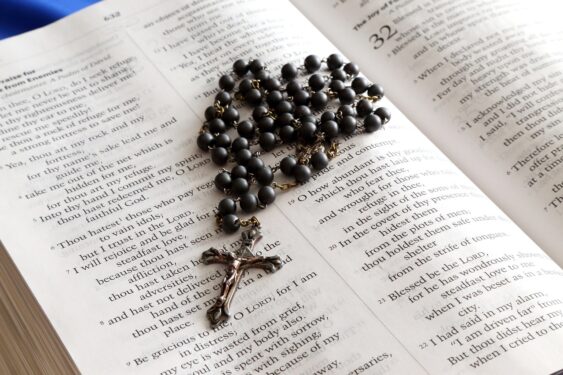
By Gina Christian
(OSV News) — As the U.S. civil rights movement unfolded, clergy, religious and lay pastoral leaders came together to explore what it means to be both Black and Catholic. The Institute for Black Catholic Studies (IBCS) at Xavier University of Louisiana, founded in 1982, has been at the forefront of this field, with its faculty members including over the years Servant of God Sister Thea Bowman, Father Bede Abram and Notre Dame de Namur Sister Delores Harrall.
OSV News recently spoke with IBCS director Kathleen Dorsey Bellow about her work, as well as the challenges and hopes for the nation’s three million Black Catholics today. (This interview has been edited for clarity and length.)
OSV News: How did you become director of IBCS?
Kathleen Dorsey Bellow: I started here in 1989 as a student, and after I got my master’s degree I continued on as a volunteer and staff assistant while teaching. I received my doctorate in liturgical studies from Catholic Theological University, but I never intended to be a professor. To me, academics were very stuffy, and I didn’t want any part of that. I’m a grassroots, “people-in-the-pew” kind of person.
But Holy Family Sister Mary Eva Regina Martin (IBCS’s former director, who died in 2014) said to me, “Who is going to teach and administer this program after we’re not here?” I could not fight her on that score. She put the role of leadership in the context of community and its importance in Black culture. If the community is going to continue, then leaders have to be formed.
OSV News: What is it like to study at IBCS?
Bellow: We have a very diverse student body, which makes for rich learning. Most of our students are lay African American people, and we have Jesuit and Josephite seminarians. We also have many people who are not Catholic, who find our approach hopeful in their particular ministry.
Our academic studies are very rigorous. At the same time, formation of mind, body and spirit is a big part of what we do. We start every morning with praise, then Mass, cultural activities and ancestral commemoration. We connect with the city of New Orleans and celebrate Maafa (an annual remembrance of the victims of the transatlantic slave trade). We meet in Congo Square (in New Orleans) and walk to the Mississippi River to honor the enslaved who died in its waters and those of the Atlantic. For some people, it’s very traumatic, because they realize the history they’ve never been exposed to.
Most learning happens in those informal environments where people get to sit, talk and walk with other folks who are in ministry, who feel the same way about the people of God and the church. We have the grace of space and time to just be with and learn from one another.
OSV News: What is the Black Catholic experience of the church at this moment in time?
Bellow: Everybody’s experience is different, but I would say there’s a small contingent who are very comfortable and feel at home in Mother Church. For them, it is a place of comfort, where they feel understood. And then you have folks who are really uneasy and have an inconsistent relationship with the church. They look at the challenges of their lives and the gifts of Black culture, and they don’t see those reflected in the ministry of the church. They’re kind of in searching mode.
We have people who have closed the door on the church and walked away. Nominally, they’re Catholic, but they’ve been too disappointed by the church. They will either be unchurched or find a faith community somewhere else.
Then there’s a group of diehards, who understand the church is both human and sinful, but also holy because it’s the body of Christ.
Each of those four groups has so much to offer the church, if the church can find a way to engage with them — even those who have walked away.
OSV News: What are some specific challenges Black Catholic ministry is currently facing in the U.S.?
Bellow: A lot of offices of Black Catholic ministry are being closed in dioceses, many due to finances. In some places, these offices have become parts of (larger) offices of multicultural ministry, where most of the resources go to the group with the largest demographics.
We have to do more in terms of (responding to) the closing of parishes and Catholic schools. In some schools, teachers do not know how to minister to Black children; they never had to before, and yet there’s a relationship between faith and culture.
We have the ongoing issue of racism, and the number of suicides in our community.
The Black Catholic community is declining in its numbers of priests. We have to prepare more lay people to be pastoral ministers.
OSV News: What do you see on the horizon for Black Catholics?
Bellow: I really don’t look too far ahead. I trust that the body of Christ is eternal, that we are all made in God’s image and likeness, and that the Spirit is here. Building the church is Christ’s work, and we are called to assist him in that ministry. And that’s really all I want to do.
